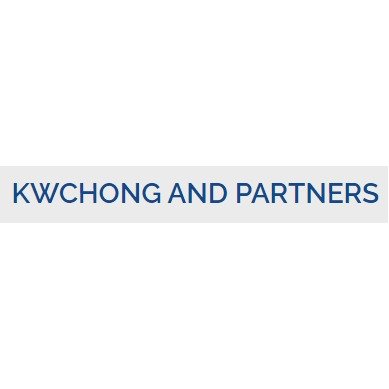Best Sanctions & Export Controls Lawyers in Teluk Intan
Share your needs with us, get contacted by law firms.
Free. Takes 2 min.
List of the best lawyers in Teluk Intan, Malaysia
About Sanctions & Export Controls Law in Teluk Intan, Malaysia
Sanctions and export controls are important aspects of Malaysian law designed to regulate the movement of goods, technology, services, and funds across borders. In Teluk Intan, as in the rest of Malaysia, these laws ensure the country's compliance with global obligations and safeguard national security, economic interests, and foreign policy objectives. Malaysian authorities oversee not only the import and export of physical items but also data, software, and sensitive information. Violating these rules can result in strict penalties, making it essential to understand how local and federal laws apply to individuals and businesses in Teluk Intan.
Why You May Need a Lawyer
Legal assistance can be crucial in several situations related to sanctions and export controls, including:
- Setting up an export business and seeking advice on compliance obligations
- Being investigated or facing enforcement actions by authorities like the Royal Malaysian Customs Department or Bank Negara Malaysia
- Responding to questions about dual-use goods or technologies that may have both civilian and military applications
- Advising on contracts and transactions with foreign parties, especially entities from sanctioned countries
- Dealing with asset freezes, restrictions on international transfers, or blocked bank accounts
- Handling cross-border deals involving sensitive technologies or restricted goods
A lawyer can help you interpret complex regulations, prepare the correct paperwork, and defend your rights in dealings with enforcement agencies.
Local Laws Overview
Several laws and regulations govern sanctions and export controls in Teluk Intan, reflecting Malaysia's broader legal framework:
- Strategic Trade Act 2010 (STA 2010): Covers export, transit, and brokering of strategic items, including arms, high-tech goods, and dual-use products.
- Customs Act 1967: Governs the export and import of goods, including declaration requirements and prohibited items.
- Money Laundering and Anti-Terrorism Financing Act 2001: Imposes obligations to prevent financing of sanctioned activities.
- United Nations Security Council Resolutions: Malaysia incorporates certain UN sanctions into local law, including embargoes and bans on deals with specific countries or entities.
- Foreign Exchange Administration Rules: Overseen by Bank Negara Malaysia, these rules set restrictions on certain cross-border funds and commerce.
Businesses and individuals must comply with these layered regulations, which are enforced by multiple agencies, making legal guidance highly advisable.
Frequently Asked Questions
What is the Strategic Trade Act and who must comply with it?
The Strategic Trade Act 2010 controls the export, transit, and brokering of strategic and dual-use items for security reasons. Anyone exporting, re-exporting, or brokering such goods must comply, regardless of business size.
Are there specific goods that cannot be exported from Teluk Intan?
Yes. Malaysia bans or controls items such as arms, certain chemicals, high-tech equipment, and dual-use technologies. Prohibited goods are updated regularly in official schedules.
What are the consequences if I breach export control laws?
Penalties include heavy fines, imprisonment, asset seizures, and loss of business licenses. Offenders may also be blacklisted from future trade activities.
How do I know if my goods are subject to export controls?
The government publishes lists of controlled goods, and a legal advisor can help determine if your items fall into these categories or require special permits.
Can individuals face sanctions or is it only for companies?
Both individuals and companies can be subject to sanctions if they deal with restricted entities or violate export controls, either knowingly or unknowingly.
Is prior approval needed for all exports?
Not all exports need approval, but controlled or high-risk items usually require permits or licenses. Always check specific requirements before shipment.
What should I do if contacted by enforcement authorities?
Seek immediate legal advice to ensure your rights are protected and to receive guidance on how to respond or provide documentation.
Are there restrictions related to trading with certain countries?
Yes. Malaysia enforces various international sanctions, including trade bans and restrictions with certain countries. Engaging in such trade can result in serious penalties.
Do sanctions affect online businesses or only physical goods?
Sanctions and export controls apply to digital goods, technology transfers, and even certain online services, in addition to physical exports.
How can a lawyer help with compliance?
A lawyer can give tailored advice on compliance, help you apply for necessary licenses, represent you in investigations, and guide you on risk management strategies related to cross-border trade.
Additional Resources
Several resources and agencies can assist with questions about sanctions and export controls:
- Ministry of International Trade and Industry (MITI): Main agency for export control licensing and regulation
- Strategic Trade Secretariat (STS): Manages compliance and licensing under the Strategic Trade Act
- Royal Malaysian Customs Department: Responsible for enforcement of customs and export laws
- Bank Negara Malaysia: Provides guidance on financial and exchange control matters
- Malaysian Bar Council: Offers directories to find qualified lawyers knowledgeable in this area
- Local Chambers of Commerce: Can offer guidance and networking opportunities for exporters
Next Steps
If you believe you need legal advice about sanctions and export controls in Teluk Intan, consider these steps:
- Gather all relevant information about your business, planned exports, or transactions
- Identify the specific goods, technology, or services involved
- Contact a qualified lawyer experienced in Malaysian sanctions and export controls laws
- Prepare to discuss your business model and intended markets with your lawyer for tailored guidance
- Consult relevant government agencies or support organizations for preliminary information, if needed
Taking prompt and informed action will help protect your interests, ensure compliance, and minimize legal or operational risks.
Lawzana helps you find the best lawyers and law firms in Teluk Intan through a curated and pre-screened list of qualified legal professionals. Our platform offers rankings and detailed profiles of attorneys and law firms, allowing you to compare based on practice areas, including Sanctions & Export Controls, experience, and client feedback.
Each profile includes a description of the firm's areas of practice, client reviews, team members and partners, year of establishment, spoken languages, office locations, contact information, social media presence, and any published articles or resources. Most firms on our platform speak English and are experienced in both local and international legal matters.
Get a quote from top-rated law firms in Teluk Intan, Malaysia — quickly, securely, and without unnecessary hassle.
Disclaimer:
The information provided on this page is for general informational purposes only and does not constitute legal advice. While we strive to ensure the accuracy and relevance of the content, legal information may change over time, and interpretations of the law can vary. You should always consult with a qualified legal professional for advice specific to your situation.
We disclaim all liability for actions taken or not taken based on the content of this page. If you believe any information is incorrect or outdated, please contact us, and we will review and update it where appropriate.









